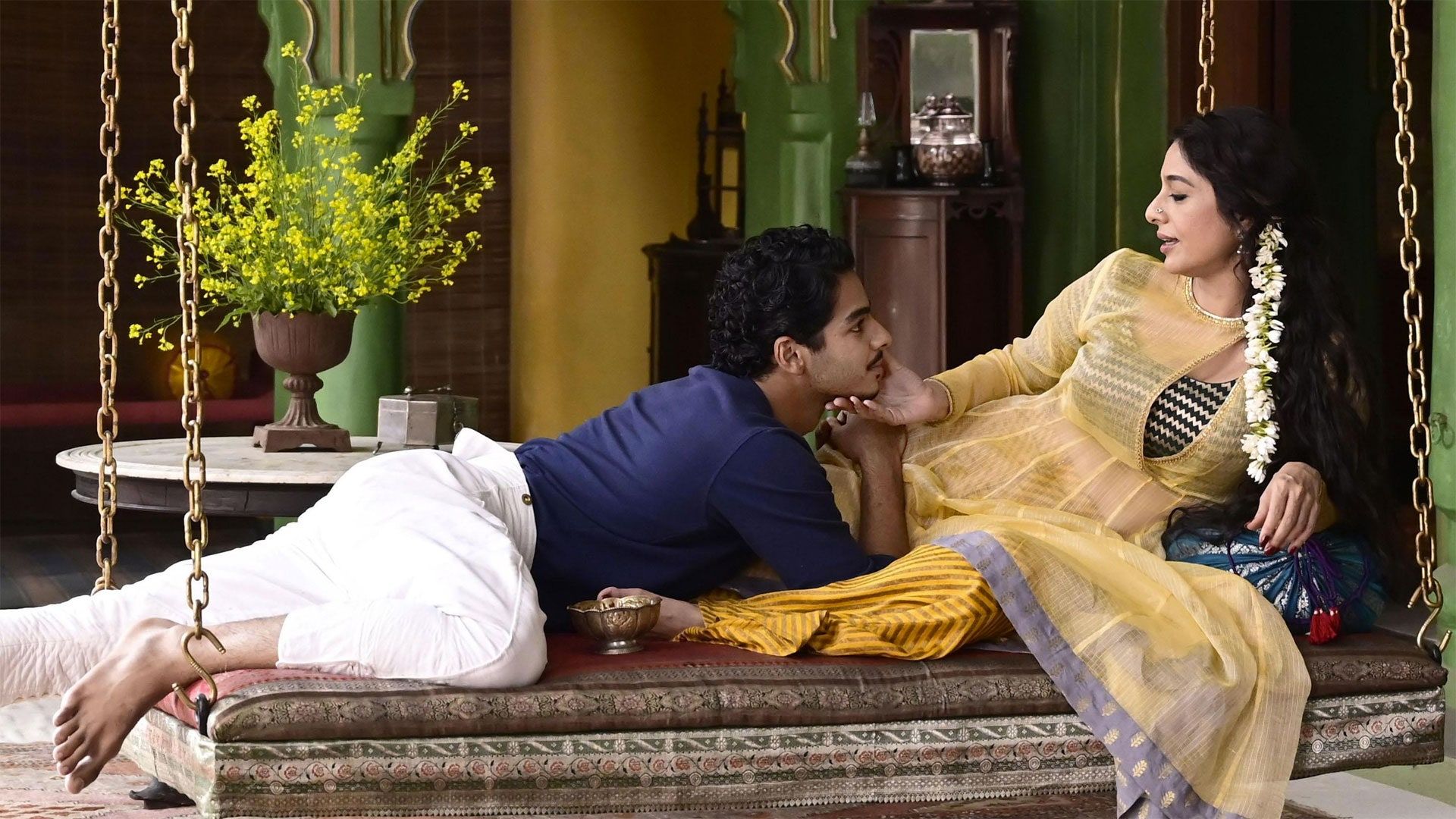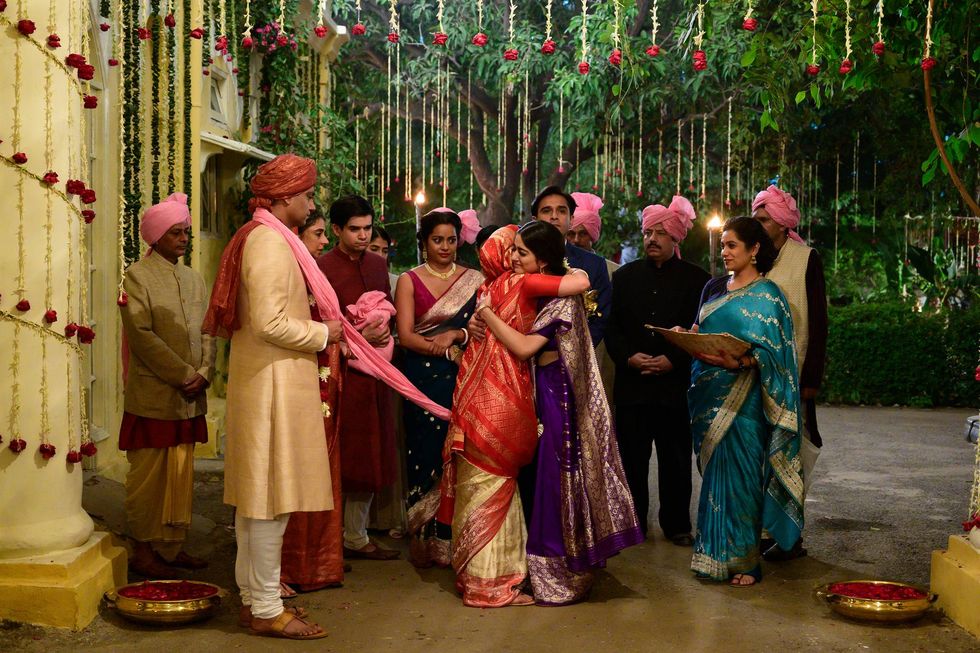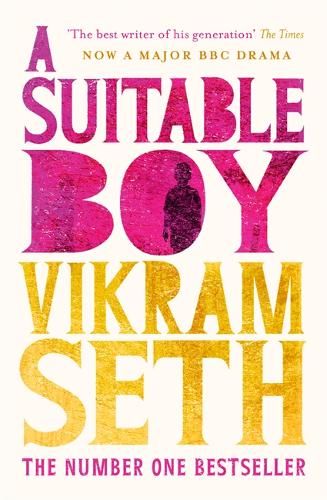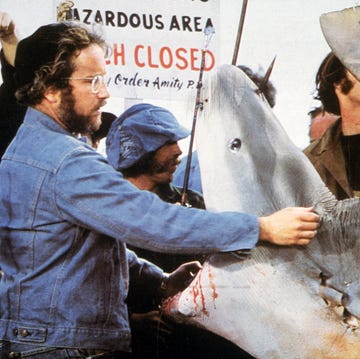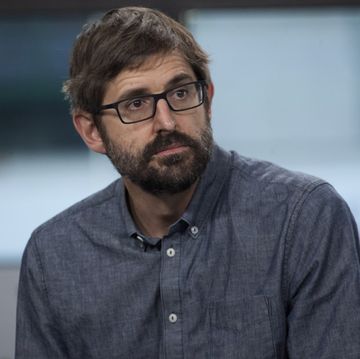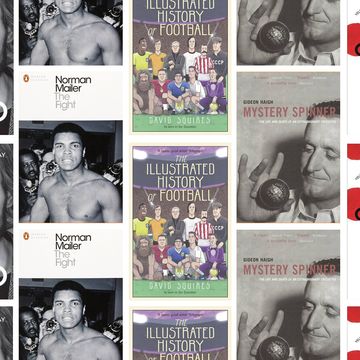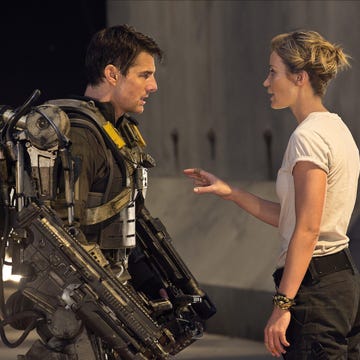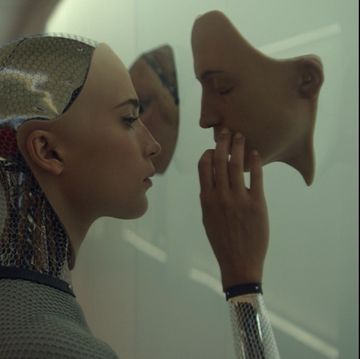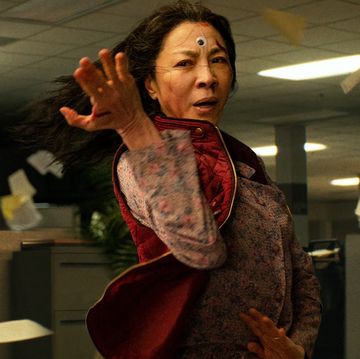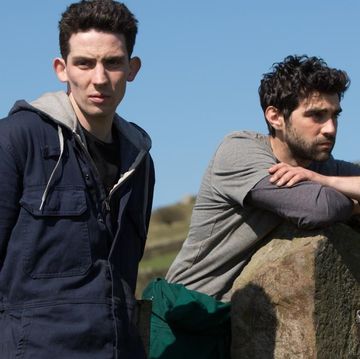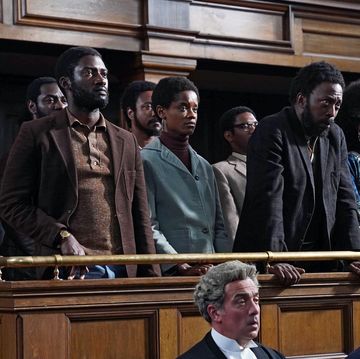The BBC's blockbuster adaptation of A Suitable Boy leaves me as divided as the India it aims to portray. On one hand, the production is gorgeous, from the slick costumes to the architectural splendour, and furniture selections that pay homage to smart Indian design. On the other, it’s matchmaking, twanging sitars and youngsters battling the pressures of ‘tradition’ – all the clichés about India that Western broadcasters and filmmakers have been peddling for decades.
The six-part series is adapted from Indian author Vikram Seth’s 1993 novel, a doorstop of a book that intertwines the politics of love and marriage with the politics of nationhood and religion. Following the lives of four middle-class Indian families in the Fifties, the TV adaptation comes at a time when white audiences are suddenly paying more attention to the representation and experiences of people of colour.
It may well be a welcome first for many Britons to see Indians swing-dancing in saris, knocking back booze at teatime and getting steamy in the sack; and he production has been applauded for its fully South Asian cast. But all this just shows how accustomed British television is to observing India through a narrow, Western lens.
Whether it’s Bend it Like Beckham and The Best Exotic Marigold Hotel, or bewildered white celebrities being plunged into scenes of urban chaos, Indianness is repeatedly figured on the British screen as exotic and colourful at best, or baffling and backwards at worst. Even in 2020, the West’s white gaze simply can’t get past colourful weddings, pushy parents and culture clashes as shorthand for a country of more than a billion individual lives and experiences.
Seth’s novel was a critique of modernity. By looking back to the Fifties, at India’s gradual shift from colonisation to independence and from a united nation to a partitioned one, he reflected the injustices and hypocrisies of contemporary society in the Nineties. Its wry delineation won the book fame as a Jane Austen-like epic for modern India, but Seth was actually reinventing the English realism genre, rather than just mimicking it, says Neelam Srivastava, professor of postcolonial literature at Newcastle University. “He wasn’t copying anyone,” she says, “he was doing something entirely new.”
So it seems remiss to view a tale like Seth’s with the nostalgia of an Austen period drama. Draping urgent contemporary issues in a cosy, romantic aesthetic risks distancing viewers from the realities of the subject matter.
In truth, certain parts of A Suitable Boy couldn’t be more timely. Seth’s story, which depicts Hindu-Muslim tensions escalating as a temple is built next to a mosque, was a response to tearing down of the Babri Masjid mosque by Hindu mobs in 1992, in the north Indian city of Ayodhya. The ensuing riots killed nearly 2,000 people. Now, the BBC’s production airs as India’s prime minister, Narendra Modi, lays the foundation stones for a new Hindu temple that is being built on the very site of that destroyed mosque.
These weighty, political tensions are anything but a romanticised memory of a distant past. Much like the subject of arranged marriage in India, which is a deeply complex contemporary issue that requires an engagement far more nuanced than the binaries of good and bad.
In the BBC's A Suitable Boy, the pious, stubborn insistence on getting children married off feels caricatured and two-dimensional, as do other characters’ oppositions to it. But to simply judge arranged marriage as backwards or unenlightened is reductive; just as to view marrying for love as the ultimate triumph of modernity over tradition is narrow, never mind highly dated even in the Western context.
The show has landed at the same time as Netflix's Indian Matchmaking, a cultural juggernaut that does exactly what it says on the tin; leaning on the same crutch as so many other television depictions of India. These narratives verge on perpetuating a superficial depiction in the Western imagination of how love and marriage work in South Asia, instead of digging deeper to uncover the nuances within.
Some of the most radical elements of Seth’s story lay in its rejection of a colonialist idea of being modern, instead considering what modernity means in India. It suggested that trying to understand these characters’ behaviour might be more productive than ridiculing them. “In its social conservatism, it’s actually doing something a bit radical,” explains Srivastava. “It’s telling us that there are values other than true love and passion that are also important.”
Perhaps six hours of television are too little for one of the longest novels ever published in English – or for the scope of Mira Nair’s vision for it. In the acclaimed director’s 2001 triumph, Monsoon Wedding, the bride married her family-approved suitor, not her secret fling – but Nair’s real heroine turned out not to be the bride at all, but her cousin, who is single, strong and a survivor. At the heart of Nair’s movie lay her delicate yet chilling portrayal of sexual abuse and how it can disappear under layers of repression and social convention.
This too was a story of an arranged marriage; it too pitted its characters against their desires and their duties; it too was drenched in all the instantly recognisable imagery of Indian tradition. But what distinguishes Monsoon Wedding from A Suitable Boy is the lens the film placed over its subject matter: a distinctly Indian lens.
Those who know Seth’s book will be curious to see how its conclusion will work for the British screen. Ultimately, the production makes us question what exactly we tend to expect from Indian love stories and how accurate we are in our own ideas about modern love.
Like this article? Sign up to our newsletter to get more articles like this delivered straight to your inbox
Need some positivity right now? Subscribe to Esquire now for a hit of style, fitness, culture and advice from the experts
